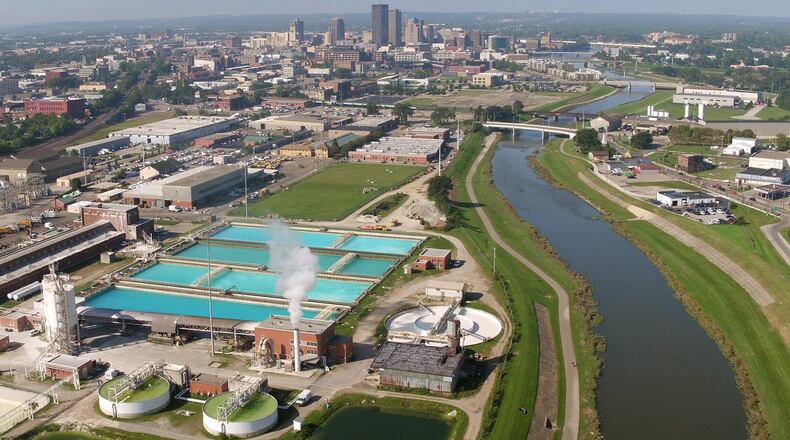Turner formed the panel in 2019, after two local water emergencies — a 36-inch water main broke in the middle of the Great Miami River near the Keowee Street Bridge in February, and the Memorial Day tornadoes. Each time, many residents were left without clean drinking water for days.
In addition, manmade contaminants known as “forever chemicals” or PFAS — per- and polyfluoroalkyl substances — have been detected in the drinking water in Dayton and Wright-Patterson Air Force Base. Studies suggest that exposure to the chemicals might affect pregnancy, increase cholesterol levels and cause some forms of cancer, according to the Centers for Disease Control and Prevention.
The water quality panel is a joint effort that includes the cities of Dayton and Trotwood, Montgomery County, regional businesses and institutional and community leaders. Nearly every organization represented on the committee contributed to LimnoTech’s $90,000 fee, officials have said.
During the meeting Thursday, LimnoTech shared with the committee the scope of the project, and they got feedback from the group to ensure that it’s consistent with the community’s needs and understanding, Turner said. The consultants also gave the panel an idea of what they can expect from the final report, he said.
The water quality study will give area leaders an understanding of what they are doing well in terms of the water system, areas of improvement and how they should address those areas, Turner has said. It will also help officials confirm the consistency of service deliveries, the infrastructure that is necessary for the future and to ensure there’s plenty of clean water available for the area, he said Thursday.
“This can be a roadmap for us as we work to try to get resources for the county and the city to ensure that they have what they need to continue to operate the water system for our region,” the congressman said.
The report also will bolster confidence for residents and businesses that rely on the the water, said Tom Raga, the committee’s chair and Dayton Power & Light vice president.
“This is something that can give an independent, unbiased report back to us and we provide confirmation of the good work we think is going on,” he said.
The study will unfold in stages, and a report will be generated at the end of each one, Raga said. The first stage, which is a look at the data, is expected to be complete in mid- to late March. The next report will be the gap analysis, and it’s scheduled for the latter part of July. The final report will be due mid to late September, Raga said.
About the Path Forward
Our team of investigative reporters digs into what you identified as pressing issues facing our community. The Path Forward project seeks solutions to these problems by investigating the safety and sustainability of our drinking water.
About the Author

